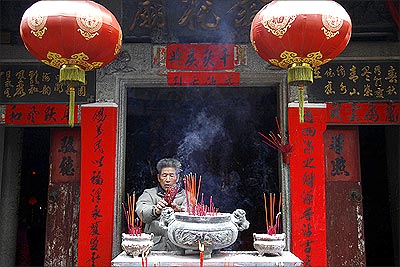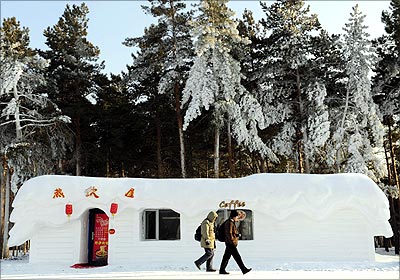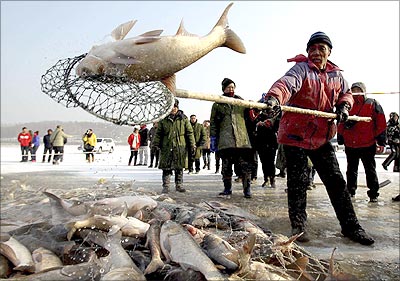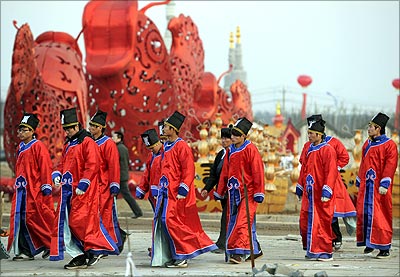 | « Back to article | Print this article |
Why China's growth is set to fall in 2012
China's economic growth rate is expected to fall to about 8.5 per cent if the ongoing euro zone debt crisis continues, a senior economist of the State Council's policy research think-tank said, while others predicted that it may fall below 8 per cent.
China's growth rate may fall to about 8.5 per cent if the European Union crisis deteriorates into a global meltdown, Yu Bin, the director-general of the Department of Macroeconomic Research at the Development Research Centre of the State Council, told state-run China Daily on Tuesday.
Click NEXT to read further. . .
Why China's growth is set to fall in 2012
His forecast for 2012 is more optimistic than those of most investment institutions, some of which have predicted that China's economic growth might fall below 8 per cent next year, the Daily said.
"If the actions to control the ongoing euro zone debt crisis fail, a possible new (global) debt crisis would deal a huge negative blow to the Chinese economy," Zhang Jianping, a senior researcher at the Institute for International Economic Research under the National Development and Reform Commission, said.
Outlining the reasons for the slowdown, Yu said, "Eastern coastal cities saw obviously slower economic growth in 2011.
Click NEXT to read further. .
Why China's growth is set to fall in 2012
Meanwhile, the potential for additional investment in infrastructure continues to shrink, signalling that the potential for economic growth has started to decline."
"China has entered the final stages of high-speed economic growth after three decades of rapid expansion," Yu said, adding that the economy is under pressure, caused by short-term sluggish demand overlapping with a slower potential growth rate in the medium and long-term.
China's export growth is forecast to decline to about 10 per cent in 2012 from about 20 per cent this year, Yu said.
Click NEXT to read further. . .
Why China's growth is set to fall in 2012
The nation's exports to the European Union, its biggest market, have seen a rapid slowdown since September.
Fixed asset investment growth may fall by about 4 percentage points to 20 per cent in 2012, Yu said.
The relatively high growth rate seen this year has been largely driven by the high-speed growth of the manufacturing and real estate industries, which account for about 60 per cent of fixed asset investment.
A decrease in exports by around 10 per cent will drag down investment in the manufacturing sector by 3 to 4 per cent.
Click NEXT to read further. . .
Why China's growth is set to fall in 2012
However, bold stimulus measures similar to the 4 trillion yuan ($632 billion) stimulus package announced by the government in 2008 in response to the global financial crisis will not be repeated, Yu said.
If the rate of growth declines, loosening policies would be unlikely to promote acceleration, Yu said.
On the contrary, they could generate bubbles and create new risks, judging by the experiences of Japan and South Korea.
The nation's short-term macroeconomic policies have been unable to promote relatively rapid economic growth in the medium to long-term.
Click NEXT to read further. . .
Why China's growth is set to fall in 2012
China's economic fundamentals, such as the structure of demand, population and labour supply have also changed.
The country must promote growth through innovation and push on with substantial reforms in the economic structure, Yu said.
He also warned of the risks from a slowing economy, including the local government debt crisis, bad bank assets and overcapacity.
Click NEXT to read further. . .
Why China's growth is set to fall in 2012
China's consumer price index is expected to fall below 4 per cent in 2012, Yu said.
Meanwhile, inflation will drop below the 4 per cent-level seen this month.
That will see inflation running at an annual pace of about 5.3 per cent in 2011, higher than the government's target of 4 per cent.
Miao Wei, the Minister of Industry and Information Technology, said on Monday that industrial output is expected to grow 11 per cent in 2012, easing from an estimated 13.9 per cent this year.






